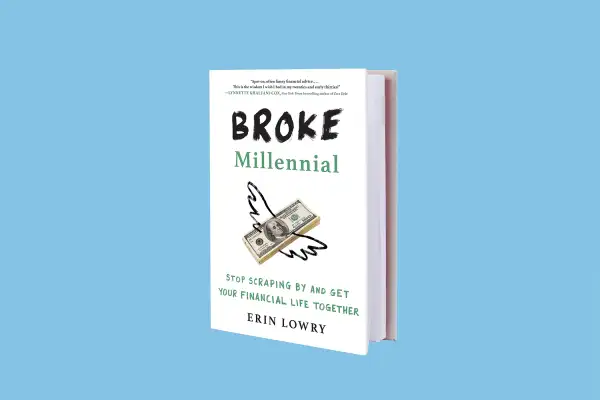There's a New Book About Money That Teens and Millennials Will Actually Read

As too many millennials have found out, life can get expensive — fast — if you don’t know your bearings around a bank statement, student loans, or a credit report.
Obviously, it's best to get a handle on how to manage your money during the high school and college years, before you're likely to truly dig yourself into a hole. The good news is that research shows that this age group — roughly 14 to 21, or what we’ll call Gen Z for lack of a better term — is actually more engaged than their older siblings when it comes to money. They’re more proactive about earning it, more interested in saving it, and less willing to go into debt. Perhaps because they've seen the damaging effects of debt on their older brothers and sisters or parents, nearly a quarter of teens say debt should be avoided at all costs, according to a new study by The Center for Generational Kinetics.
But this is still a generation more apt to be interested in emoji than emerging economies, and a lot of the money and finance books out there today aren’t geared towards the needs or interests of these kids. And no matter how solid some advice may be about money, it won't do teenagers and millennials any good if they never pause to absorb it.
A new book being released on Tuesday aims to fill a special niche: Personal finance experts say that the book not only has great insights and tips about handling money, but it's written in a casual, relatable way that ensures kids will actually read what's inside.
The book refers to Gen Y in its title, but experts say Broke Millennial is just as — if not more — relevant for their younger siblings.
“They’re far smarter about spending money than the millennials were, and they’re far more financially conscious about spending money in the right way,” says Joe Duran, founder and CEO of United Capital, a financial advisory firm.
Based on the blog of the same name by Erin Lowry, the book bridges the divide between education and entertainment, which will appeal both to this generation’s notoriously short attention span as well as its thirst for financial knowledge.
“Her tips are typically easy to digest and actionable,” says Kim Lear, founder and content director of research consultancy Inlay Insights. “I think it would be a great read for Gen Z to help them avoid making the mistakes millennials made with money during college.”
Lowry has plenty of been-there, done-that anecdotes, and a tone that skews more personal than pedantic. "The tone is one that makes you feel like, 'we're all in this together,' and not the typical talking to you like you're a kid that you often find in other books geared toward young adults," says Jason Dorsey, The Center for Generational Kinetics' president and millennials researcher.
Duran says Gen Z is more open about financial topics and more clear-headed about what’s important. “They’re far more sophisticated and nuanced than their parents give them credit for,” he says. With money no longer a taboo topic, Lowry’s willingness to shine the spotlight on her mistakes (or flip her camera to selfie mode, if you will) is an attribute high school and college kids are likely to find appealing.
"Erin's Broke Millennial message does a great job of presenting practical how-to money advice in a conversational way," Dorsey says.
Although the book does dig into the nitty-gritty of student loan debt, investing while young, understanding taxes, and a host of other real-life financial mazes, Lear says Lowry does so with a light touch. “It's a book I wish I had when I was 17 years old,” she says.
We’ve included affiliate links into this article. Click here to learn what those are.
